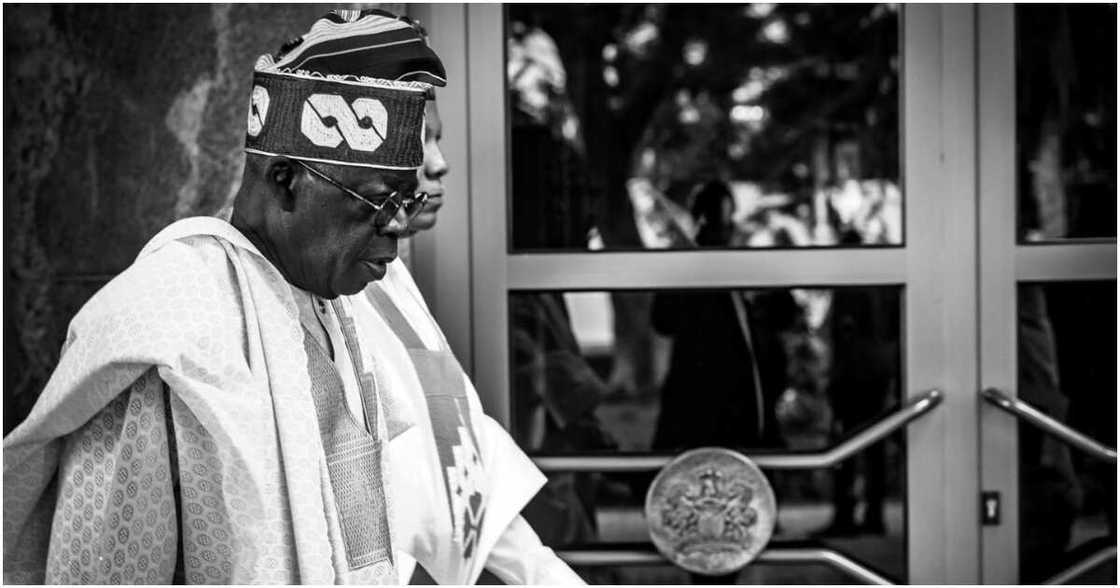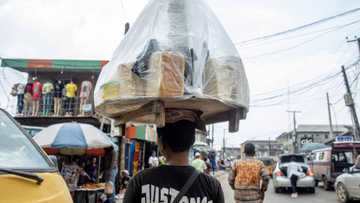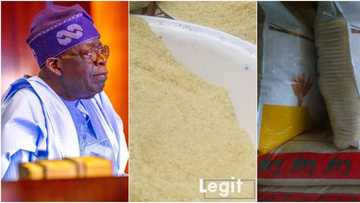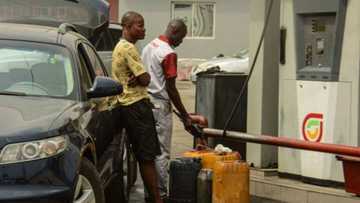Fuel Subsidy Removal: 4 Major Issues Frustrating Nigerians Following President Tinubu’s Directive
The removal of fuel subsidy as announced by President Bola Ahmed Tinubu during his inaugural address on Monday, May 29, has led to myriads of issues in Nigeria.
However, Tinubu, in his inaugural address, gave as a reason for the discontinuation of the fuel subsidy the fact that the immediate past administration of President Muhammadu Buhari made no provision for it in the 2023 budget.

Source: Facebook
How has fuel subsidy removal impacted Nigerians so far
Currently, fuel subsidy removal has resulted in a high cost of living and rising inflation in the country as Nigerians, both the rich and the poor battle to come in tune with the harsh realities.
Although Tinubu's government has promised to provide palliative to cushion the effect of subsidy removal on the people, yet, the impact so far on the people is unsettling.
PAY ATTENTION: Follow us on Instagram - get the most important news directly in your favourite app!
In view of the above assertion, Legit.ng compiled the major issues bothering Nigerians that have arisen from fuel subsidy removal by Tinubu's led federal government.

Source: Facebook
1. Hike in petrol pump price
A few hours after President Tinubu made the announcement, petrol pump prices skyrocketed from N195 to N490 and N500 per litre in all states in the country.
Nigerians are facing hardship at the moment, and the increased cost of fuel has a direct impact on the cost of food and transportation.
2. Increment in the cost price of goods
There is a noticeable change in the cost price of major goods in the market. Traders at popular Lagos market where goods are sold at wholesale prices are lamenting bitterly as the cost price of major food items has increased drastically.

Read also
Nigerian bakers serve notice to increase prices of bread, blame inflation, foreign exchange, others
At Mile 12 international market, the cost price of rice, and perishables (tomatoes and pepper), ogbono, egusi, palm-oil and even provisional items have skyrocketed.
Following this development, it is difficult for many Nigerians to afford a balanced diet.
3. Hike in transport fares
The cost of moving within the city on commercial transportation has increased in the past weeks following the adjustment in the pump price of petrol.
This is even more frustrating as Lagosians spend double on transportation fares to get to their desired locations because public transport operators have increased their fares due to the increase in the cost of fuel. An example is that a journey of N100, N200 have increased to N300 and N400.
Tricycle riders are feeling the heat more following this recent development in the polity.
4. Rising cost of living
The cost of living among Nigerians has spiked as the unemployment rate rises further.

Read also
Legit.ng price check: Tinubu gets urgent message as bag of local rice sells for N41,000 in Lagos market
Electricity bills, house rent and others have increased as half of Nigerians are under or unemployed, a figure that rises to two-thirds for young people who make up the majority of the population.
However, the president is expected to tackle this problem and reduce it to the barest minimum as Nigerians are greeted with attendant issues including spiralling inflation, increased poverty level and job loses.
Conclusion:
Whilst the prevailing state of national security becomes worrisome, the issues mentioned above are unprecedented and unbearable.
Nigerians, however, expect President Bola Tinubu to revamp our ailing and critically dysfunctional economy.
Fuel subsidy removal: Nigerian bank, companies raise employees' salaries to reduce hardship
As inflation and the cost of living continue to rise, a growing number of businesses are taking proactive steps to mitigate the impact on their employees.
Recognizing the importance of retaining a motivated and productive workforce, many companies have started to increase workers' salaries, aiming to alleviate the financial burdens faced by their employees.
Findings by Legit.ng have revealed that some of the companies displayed a magnanimity of salary increases to as much as 100%.
Reno Omokri reveals what Tinubu govt should do after fuel subsidy removal
Former presidential aide, Reno Omokri, on Friday, June 2, asked the administration of Bola Ahmed Tinubu to "remove its hands from anything concerning fuel".
Omokri, who made this demand via his verified Twitter handle, said the government's participation in fuel should only be a regulatory role.
The Peoples Democratic Party (PDP) supporter also advised trade union bodies against embarking on strike actions. This is as the Nigeria Labour Congress (NLC) said on Thursday, June 1, that it is not planning to commence a strike over the removal of petrol subsidy as claimed in some quarters.
Source: Legit.ng




